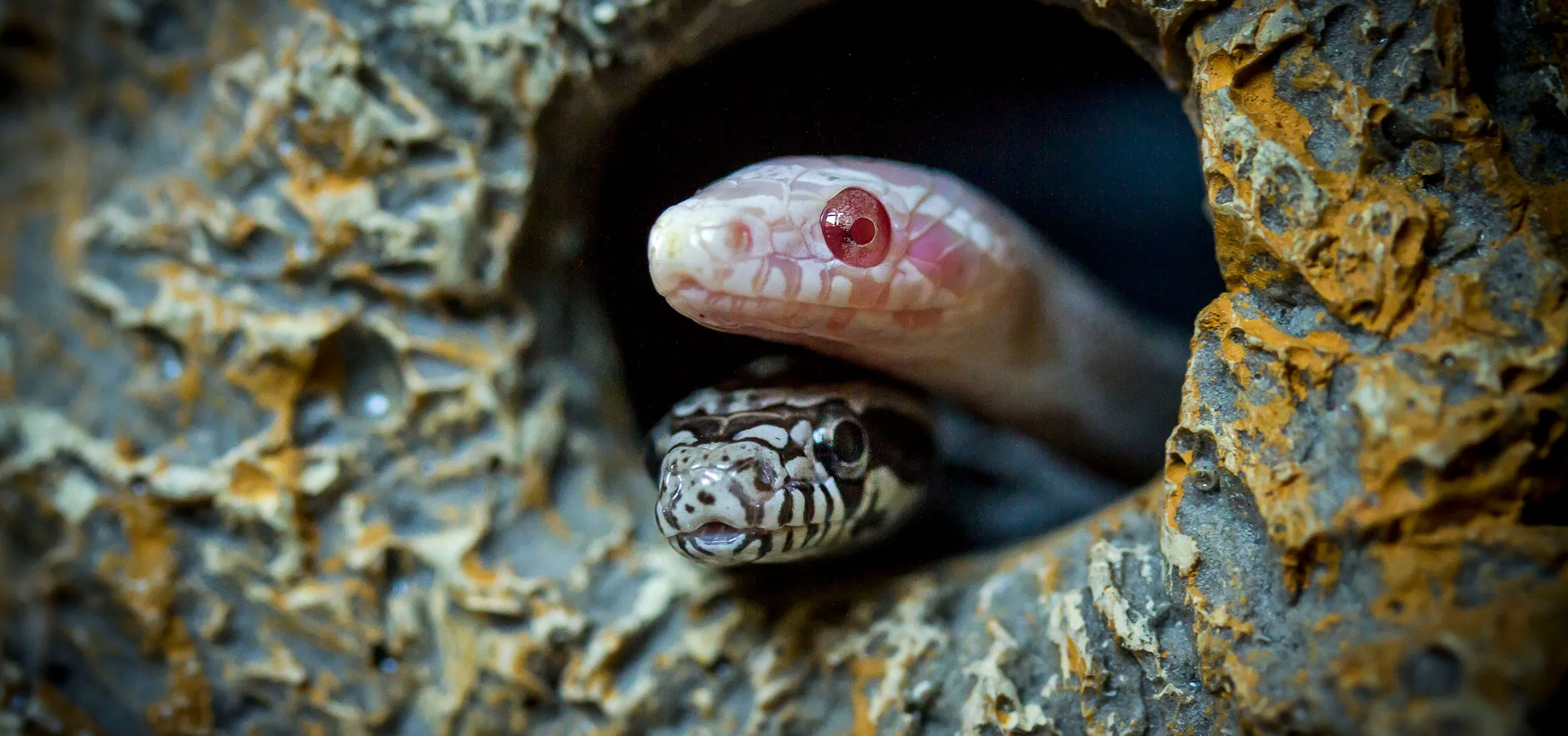Exotic and endangered animals are being traded online in China, in spite of numerous regulations, owner arrests, and deaths
After decades of being considered decadent, the pet industry is thriving in China. Feline ownership ranks second and canine ownership third globally in 2016. Some, however, prefer rare and exotic pets, and are prepared to get one at any cost—even their own life.
According to the Beijing News, a 21-year-old Yingying (pseudonym) in Weinan, Shannxi province was bitten by a many-banded Chinese krait she bought online on July 9, and declared brain dead after several days’ hospitalization. According to her online record, the seller informed Yingying of the snake’s highly venomous nature, but she claimed the animal was for a baijiu she planned to infuse and insisted on a live creature. The krait was then delivered to her by courier service.
Like Yingying’s pet, the many-banded krait is a protected species in China that can only be traded with the approval of relevant government authorities, according to a wildlife conservation worker in Weinan. The Rules for the Implementation of the Postal Law of the People’s Republic of China, issued in 1990, forbid the postal delivery of any living creature.
However, an investigation by the Beijing News found that lots of weird pets—including scorpions, snakes and other national protected species and poisonous ones—are available for sale on JD.com, Taobao and other online platforms. The reporters learned from some sellers that these “pets” can even be delivered without any certificate of vaccination.
Though TWOC failed to find any serpents while browsing online, animals such as scorpions, rats, rabbits, and dogs were being sold, with many sellers promising to have the products delivered alive—and covering the express fee. They said that drivers seldom check the packages, and major courier services Shentong, Yunda, Zhongtong, and Yuantong have all expressed that living creatures are deliverable if the local outlets agree. Moreover, the national Postal Law does not stipulate any punishment for violations. Whoever is responsible, netizens have their say:
To purchase such a lethal snake, (she) must be tired of life. Besides; it’s forbidden to trade and transport many-banded kraits. The online shopping platform, seller, and courier service should all take partial responsibility.
Are courier services so advanced? I have a camel that needs delivery
Illness can be cured, but stupidity cannot.
Tip from an old country boy: Adults, don’t spoil yourselves like big babies! “Pet and bite”
In this particular case, no one has been punished (though Yingying paid with her life). But another incident, involving a Kuaishou user called Pan had greater ramifications.
According to People.cn, last June Pan attracted followers as well as police with short videos featuring her pet monkey. After Yingbao county cops sent the monkey to the Forensic Center of Nanjing Forest Police College for identification, they found it was a Class II protected species of China—a macaque. Police tracked down and arrested a couple, Ma and Li, who shot videos of their macaque collection on Kuaishou or Huoshan film-sharing platforms then sold 16 protected macaques to Pan and others, as well as man called Bao, who sold the monkeys to Ma and Li and 20 more nationwide.
In accordance with Article 341 of the Criminal Law of PRC, those who hunt or kill endangered or protected wild animals, or those who purchase, transport or sell such animals or relevant products without approval of relevant authorities can be sentenced to anything from detention plus fines, five to ten years in jail plus fines or over 10 years plus fines or confiscation of property, depending on the crime.
Live-streaming apps are throwing up numerous violations of the law: Beijing Youth Daily found many Douyin (another short video-sharing platform) users were showing off pet servals (an African wild cat, like a small leopard) and some even sold the globally engendered and national Class II protected species. An official at the Beijing Gardening and Greening Bureau told the paper that institutions and individuals have to obtain certificates to domesticate alien wild animals, and apply to forestry bureaus for selling and buying; the authority will not issue any certificate to those who want to keep servals as pets.
According to Douyin user “薮猫Mystic,” who acquired 200,000 followers with short videos of her pet serval, servals cost 60,000 to 100,000 RMB or more, based on the domesticity of the cats, and buyers must raise the animal secretly since it is hardly possible to acquire the relevant qualifications.
An animal protection expert warned that the serval is a relatively aggressive cat and may hurt people, and those traded secretly face many health risks due to lack of quarantine inspection and vaccination—hopefully, this may scare off at least some (potential) keepers of uncommon pets.












